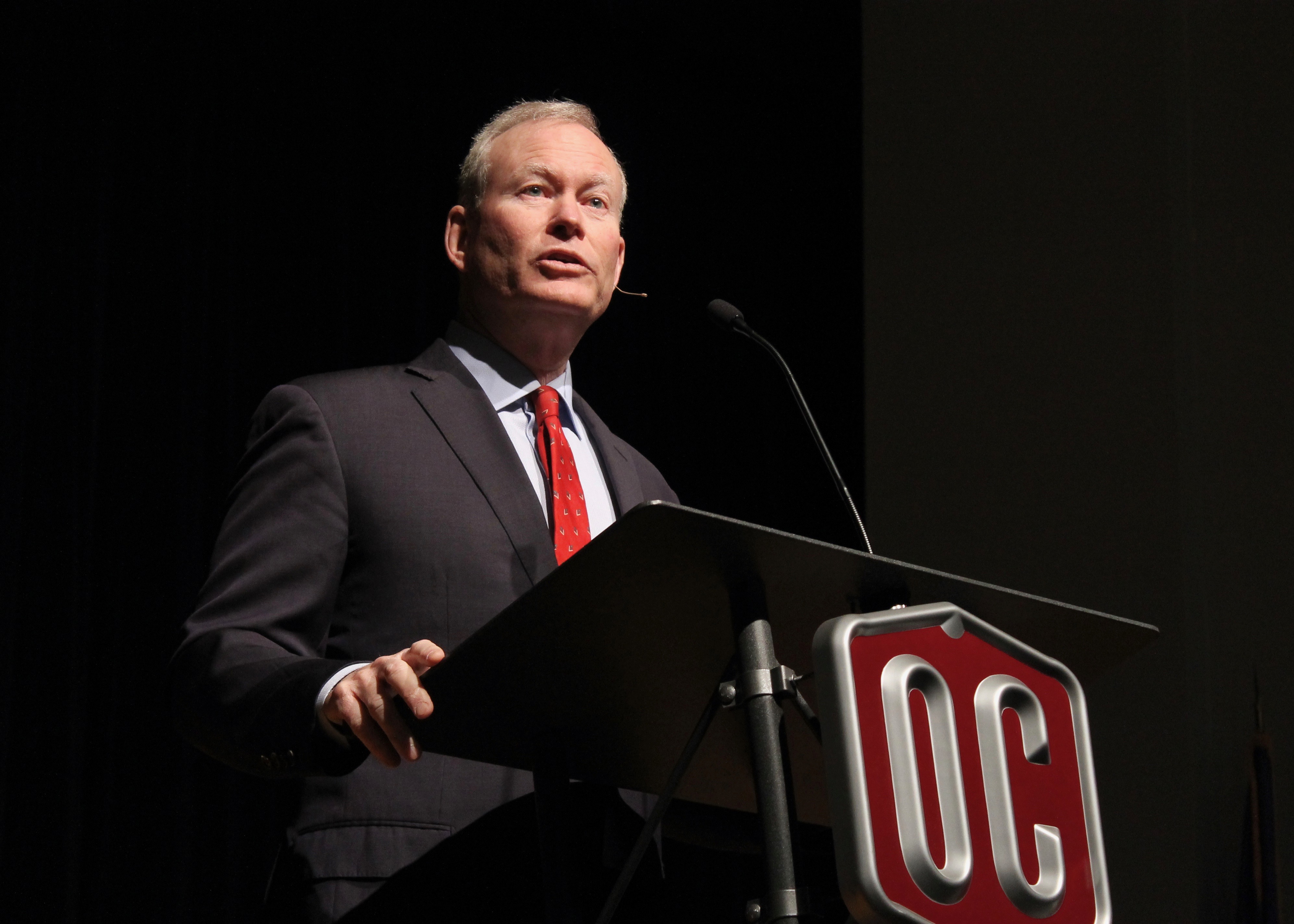Mayor Mick Cornett visited Oklahoma Christian University to speak in chapel, yesterday, March 8, to address mental health in the state of Oklahoma.
Professor of Communication Joshua Watson introduced Cornett before his speech, providing insight on Cornett’s political history.
“Cornett was instrumental to bringing NBA to OKC,” Watson said. “Just like ‘In Russ We Trust,’ ‘In Mick We Trust.’”
Watson also said this was not Cornett’s first interaction with Oklahoma Christian, and has developed a relationship with the university.
“He spoke at the 2009 commencement, was honored at the 2011 associates gala and even connected Neil After with the Oklahoma Trails Commission to finish the Eagle Trail,” Watson said. “It’s evident he is a strong advocate for health.”
Cornett opened his speech with commending the university on the success and reputation of its graduates.
“There is not a whole lot of civic trouble makers who are carrying a degree from this university,” Cornett said. “Consider yourselves fortunate to pursue an education here.”
After realizing flaws in personal health, Cornett said he started the process to bring about change to Oklahoma’s health system.
“We can’t look at the mental health issue and say we are succeeding,” Cornett said. “The statistics show otherwise. You are taking a step in the right direction by having a speaker talk openly about it now.”
Cornett said mental health often carries stigmas inside of families, which is something he thinks Oklahomans need to work to avoid.
“We need to be proactive, open up, and find that we have receptive ears around us,” Cornett said.
Cornett said he admits that Oklahoma doesn’t have all of the political answers, but he thinks the answer to mental health awareness lies in each citizen making a change in the right direction.
“We continuously underfund many very important services in Oklahoma, health, mental health and education,” Cornett said. “To change the culture of health or education, it doesn’t require government funding. Most health situations can be improved if people proactively work on them, no matter what they are.”













Be First to Comment